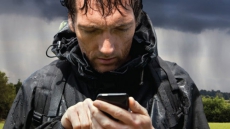Even before you consciously see the face of a person, your brain can judge his/her trustworthiness, says a study.
"Our findings suggest that the brain automatically responds to a face's trustworthiness before it is even consciously perceived," said Jonathan Freeman, an assistant professor in New York University.
For the study, the researchers focused on the workings of the brain's amygdala, a structure that is important for humans' social and emotional behaviour.
Across the two experiments, the researchers found that specific regions inside the amygdala exhibited activity tracking how untrustworthy a face appeared.
"The results are consistent with an extensive body of research suggesting that we form spontaneous judgments of other people that can be largely outside awareness," Freeman added.
Other regions inside the amygdala exhibited activity tracking the overall strength of the trustworthiness signal (whether untrustworthy or trustworthy) - even though the participants could not consciously see any of the faces.
"These findings provide evidence that the amygdala's processing of social cues in the absence of awareness may be more extensive than previously understood," Freeman noted.
"The amygdala is able to assess how trustworthy another person's face appears without it being consciously perceived."
The study appeared in the Journal of Neuroscience.





